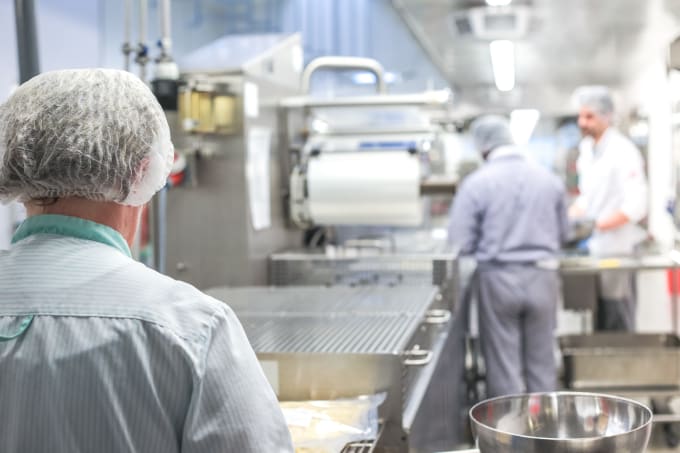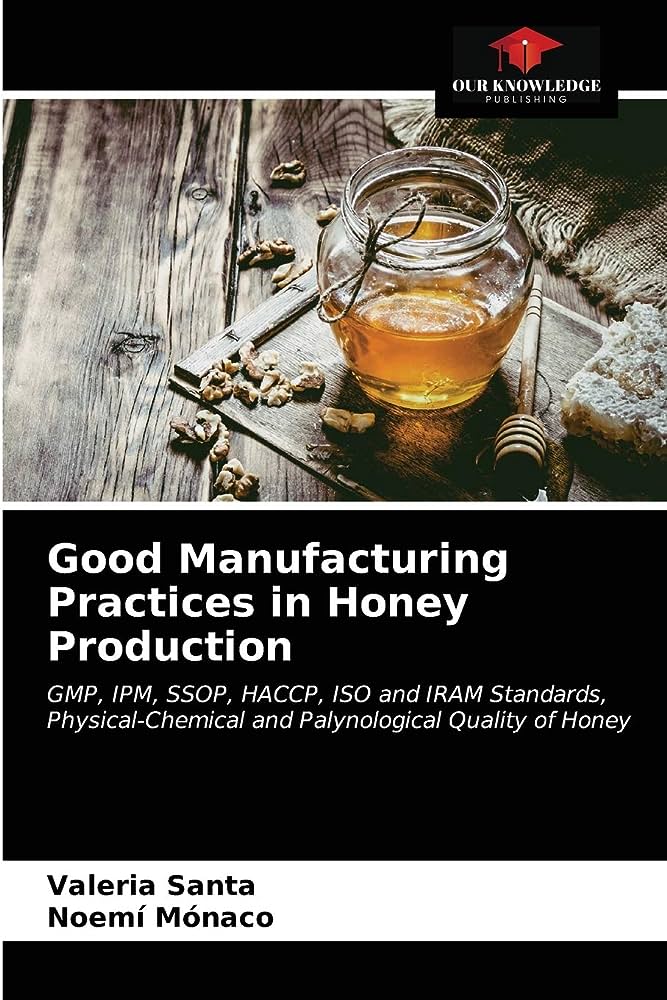GMP (good manufacturing practices) and ssop (sanitation standard operating procedures) are hygiene standards followed in the food industry. In the highly regulated food industry, it is crucial to ensure the safety and quality of products.
This is where gmp and ssop come into play. Gmp refers to a set of guidelines that ensure safe and consistent production, packaging, and storage of food products. It covers aspects such as hygiene, sanitation, documentation, and employee training. Ssop, on the other hand, focuses specifically on the sanitation procedures and practices that must be followed to maintain clean and safe food processing environments.
By implementing gmp and ssop, food manufacturers can ensure that their products meet stringent quality and safety standards, protecting both consumers and their business reputation.

Credit: www.fiverr.com
GMP And SSOP: An Overview
Gmp and ssop are crucial in diverse industries, ensuring quality and safety control. Gmp, or good manufacturing practices, focuses on maintaining sanitary conditions, proper hygiene, and quality control in the manufacturing of products. Ssop, or sanitation standard operating procedures, emphasizes the cleaning and sanitization processes to prevent contamination and ensure a safe environment.
Both gmp and ssop play significant roles in industries such as food processing, pharmaceuticals, cosmetics, and healthcare. They ensure compliance with regulations, protect consumers from potential health hazards, and maintain product consistency. Companies that adhere to gmp and ssop demonstrate their commitment to quality and safety, building trust with customers and regulators.
The implementation of these guidelines also minimizes the risk of product recalls, legal issues, and reputational damage. Gmp and ssop establish a framework for best practices, improving operational efficiency and overall product quality.
Gmp: Good Manufacturing Practices
Gmp, or good manufacturing practices, are guidelines and regulations that ensure product quality and safety. These practices are crucial for industries involved in the manufacturing of food, pharmaceuticals, and medical devices. Implementing gmp in manufacturing processes is essential to maintain consistency, minimize risks, and meet regulatory requirements.
Adequate training and education play a significant role in ensuring employees understand and follow gmp guidelines. By adhering to these practices, companies can enhance product quality, reduce the likelihood of contamination or errors, and ensure customer satisfaction. Gmp is an integral part of maintaining high standards and complying with industry regulations, making it essential for any manufacturing organization.
Ssop: Sanitation Standard Operating Procedures
Gmp (good manufacturing practice) and ssop (sanitation standard operating procedures) are important in maintaining hygiene and sanitation in food processing facilities. Establishing effective ssops is crucial to ensure the cleanliness and safety of the production environment. Regular audits and inspections help to identify any areas that require improvement.
By adhering to ssop protocols, food processors can prevent contamination, reduce the risk of foodborne illnesses, and uphold product quality. These procedures cover a wide range of activities, from personnel hygiene to cleaning and sanitizing equipment. It is essential for food processors to design ssops specific to their facility’s needs and regularly review and update them to guarantee ongoing compliance.
Following gmp and ssop guidelines is essential for ensuring the highest standards of sanitation and safeguarding public health.
Gmp Vs. Ssop: Key Similarities And Differences
Gmp (good manufacturing practice) and ssop (sanitation standard operating procedures) are both essential in ensuring the quality and safety of food products. While gmp focuses on the overall manufacturing process, ssop is specifically designed for maintaining cleanliness and preventing contamination.
These two systems share some similarities, as they both aim to establish guidelines and procedures for various aspects of production. However, their main difference lies in their respective areas of focus. Gmp encompasses the entire manufacturing process, including storage and distribution, while ssop concentrates on sanitation practices.
Although there are overlapping areas between gmp and ssop, such as equipment cleaning and employee hygiene, a combined approach is crucial to address any gaps and ensure comprehensive quality control. By integrating both gmp and ssop principles, companies can enhance their overall product safety and compliance measures.
Benefits And Challenges Of Implementing Gmp And Ssop
Gmp and ssop compliance offer numerous advantages for businesses. By adhering to these guidelines, companies can enhance product quality and ensure consumer safety. Implementing gmp and ssop helps in maintaining high standards for manufacturing practices and processes. This, in turn, results in products that meet regulatory requirements and customer expectations.
However, there can be challenges in implementing gmp and ssop. Companies may encounter barriers such as resource constraints, resistance to change, and the need for employee training. Overcoming these challenges requires a proactive approach and effective communication throughout the organization.
Despite the challenges, the benefits of gmp and ssop compliance far outweigh the difficulties faced during implementation. Businesses that prioritize these standards can build a reputation for trust and reliability in the market, ultimately leading to long-term success.
Case Studies: Successful Gmp And Ssop Implementation
Gmp and ssop are important practices in the pharmaceutical and food and beverage industries. Successful implementation of gmp and ssop can be seen in various case studies. These case studies provide valuable insights into best practices for gmp and ssop adoption.
Lessons learned from these successful cases can help other businesses in their implementation process. It is crucial to avoid overused phrases and maintain a concise writing style. By adhering to seo-friendly guidelines, the content can be made easily understandable and plagiarism-free.
The use of active voice and a variety of expressions keeps the reader engaged. Overall, gmp and ssop play a vital role in ensuring quality and safety in the respective industries.
Frequently Asked Questions
What Is Gmp And Ssop?
Gmp stands for good manufacturing practices, which are guidelines for ensuring the quality and safety of food and pharmaceutical products. Ssop, on the other hand, stands for sanitation standard operating procedures, which are specific procedures for maintaining cleanliness and preventing contamination in food processing facilities.
Both gmp and ssop are crucial for maintaining product integrity and consumer safety.
Conclusion
To wrap up, understanding gmp and ssop is crucial for maintaining quality and safety in the food industry. Gmp ensures that products are consistently produced and controlled according to quality standards. It covers the entire production process from raw materials to the finished product.
On the other hand, ssop focuses specifically on maintaining sanitation and cleanliness in the production facility, keeping potential contaminants at bay. This is crucial for preventing foodborne illnesses and ensuring consumer confidence in the products. By implementing gmp and ssop, companies can meet regulatory requirements, reduce the risk of recalls, and protect their brand reputation.
Regular inspections and audits help to enforce compliance and identify areas for improvement. Ultimately, embracing gmp and ssop not only benefits the company but also contributes to a safer and healthier food supply chain for everyone. So, start implementing these practices today and elevate your food safety standards to the next level.

Leave a Reply